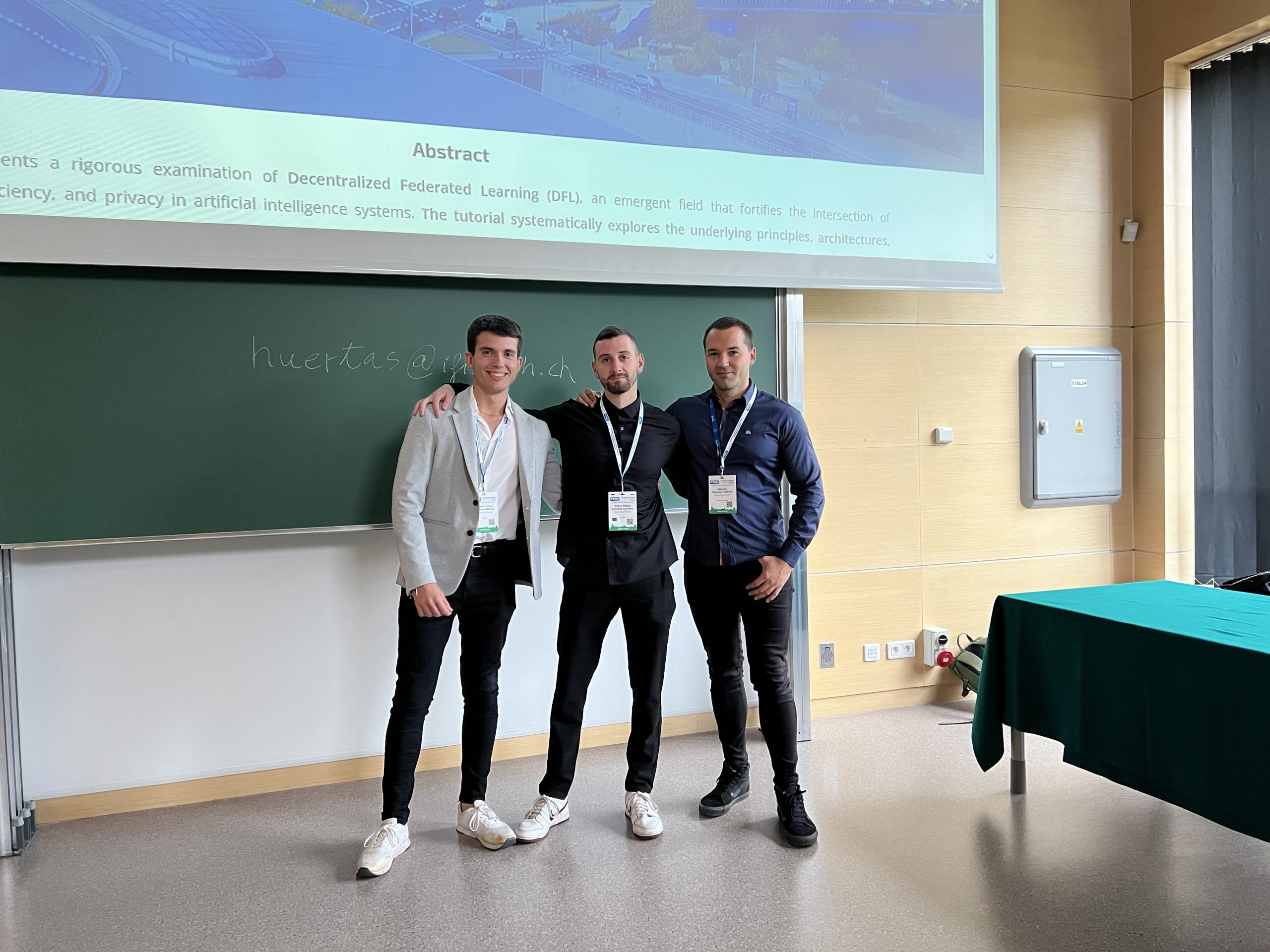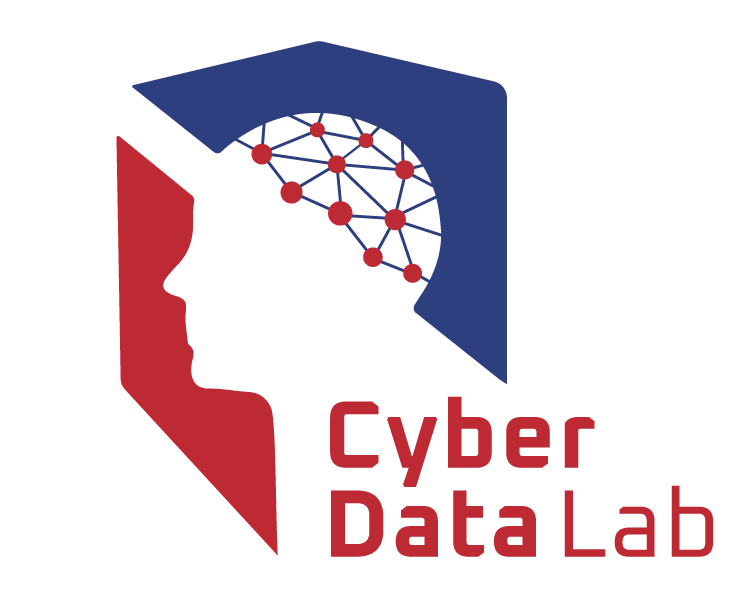Abstract
This tutorial presents a rigorous examination of Decentralized Federated Learning (DFL), an emergent field that fortifies the intersection of collaboration, efficiency, and privacy in artificial intelligence systems. The tutorial systematically explores the underlying principles, architectures, components, security strategies, and optimization techniques inherent to DFL. Moreover, participants will have the opportunity to gain hands-on experience with Fedstellar, a platform for training DFL models, and delve into real-world use cases, effectively marrying theory with practice. Attendees will gain an understanding of practical applications, as well as a vision of future trends, encapsulating the transformative potential of DFL in the realm of Artificial Intelligence (AI) and associated domains.
ECAI is Europe’s premier AI research venue. They are honored to host the 26th edition of this conference in person in Kraków, one of Europe’s most stunning cities. ECAI 2023 will feature, as usual, a full program of technical papers, as well as many AI-related events of interest for researchers, students, and industry professionals.
The tutorial will be held at the 26th European Conference on Artificial Intelligence (ECAI 2023), which takes place on September 30-October 5 in Kraków, Poland.
Resources
- Slides [PDF]
- Decentralized Federated Learning: Fundamentals, State of the Art, Frameworks, Trends, and Challenges [Paper] [Preprint]
- Fedstellar: A Platform for Decentralized Federated Learning [Preprint]
- Mitigating Communications Threats in Decentralized Federated Learning through Moving Target Defense [Preprint]
Outline of the Tutorial
Spotlight (90-minute)
Topics to be dealt with in the tutorial:
Theory Part – Decentralized Federated Learning Motivation and Fundamentals (40 minutes)
- Introduction: The Growing Importance of Decentralized Federated Learning
- Definition and Concept
- Motivations and Objectives
- Advantages and Limitations
- Fundamental aspects of Decentralized Federated Learning
- Federation Architecture
- Network Topology
- Communications Mechanisms
- Security and Privacy
- Key Performance Indicators
- Optimizations
Practical Part – Frameworks, Applications, and Use Cases (30 minutes)
- A quick overview of Decentralized Federated Learning Frameworks, its Key Features, and Capabilities
- Fedstellar: A Platform for Decentralized Federated Learning
- Practical Exercise
- Simulated deployments using docker containers and well-known distributed datasets
- Decentralized Federated learning to detect anomalies produced by malware affecting Raspberry Pis
Wrap-up – Conclusions and Challenges (20 minutes)
- Emerging Trends and Technological Developments in Decentralized Federated Learning
- Open Challenges and Future Research Opportunities
- Recap of Key Insights from Decentralized Federated Learning Research
Potential target audience
This tutorial will benefit a broad spectrum of ECAI attendees. It is particularly suitable for AI researchers, practitioners, and specialists who seek to augment their understanding of privacy-preserving learning methods and decentralized architectures. Furthermore, it is appropriate for professionals operating at the intersection of AI and other fields such as healthcare, manufacturing, and telecommunications, where DFL has substantial real-world implications. While a basic understanding of machine learning concepts and federated learning is helpful, the tutorial is structured to be accessible to those with varying levels of familiarity, from relative newcomers to seasoned experts.
Description of the Topics
Decentralized Federated Learning (DFL): As the Artificial Intelligence field continuously evolves to address growing concerns about privacy and efficiency, DFL emerges as a significant focus. This tutorial provides an in-depth understanding of the core principles, motivations, benefits, and challenges of DFL. It elucidates the comparison of centralized and decentralized approaches and delves into key architectural considerations, vital components, and network topologies. The tutorial further explores the role of communication protocols, privacy and security measures, and the importance of trust management in the context of DFL.
Federation Topologies: This tutorial extends to cover the importance and role of various federation topologies in DFL. Different federation structures significantly impact the efficiency and resilience of DFL models. We will explore the practical implications and trade-offs of various topologies, such as star, ring, or fully connected networks, and their impact on model performance, communication overhead, and fault tolerance.
DFL Frameworks: There is a scarcity of DFL frameworks available for practical implementation. This tutorial includes the status of existing solutions, analyzing their key features, capabilities, use cases, and ease of use. This section is crucial for understanding the toolsets available for practitioners wanting to implement DFL in their respective fields.
Use Cases & Practical Exercise: The transformative potential of DFL is best demonstrated through real-world applications. This tutorial offers a comprehensive overview of practical use cases across various sectors, including healthcare, Industry 4.0, mobile services, military, and autonomous vehicles. It elucidates how DFL is applied to solve pressing challenges in these sectors, providing participants with a vivid understanding of its real-world implications. Moreover, a practical exercise is included in the tutorial to allow attendees to implement a DFL model within a simulated real-world scenario, providing them an invaluable hands-on experience.
Presenters

Authors

Alberto Huertás Celdrán | Senior Researcher | Communication Systems Group (CSG) at the Department of Informatics (IfI), University of Zurich UZH, 8050 Zürich, Switzerland | huertas@ifi.uzh.ch
Alberto Huertas Celdrán received his MSc (2012) and Ph.D. (2017) degrees in Computer Science from the University of Murcia, Spain. He is currently a postdoctoral fellow at the Communication Systems Group CSG, Department of Informatics IfI at the University of Zurich UZH. His scientific interests include medical cyber-physical systems (MCPS), brain-computer interfaces (BCI), cybersecurity, data privacy, continuous authentication, semantic technology, context-aware systems, and computer networks.

Enrique Tomás Martínez Beltrán | Junior Researcher | Department of Information and Communications Engineering, University of Murcia, 30100 Murcia, Spain | enriquetomas@um.es
Enrique Tomás Martínez Beltrán is a Ph.D. student in Computer Science at the University of Murcia, Spain. He obtained a B.Sc. degree in Information and Communication Technologies (2016) and an M.Sc. degree in New Technologies (2017), specializing in information security, networks, and telematics. Currently, his research is centered on collaborative learning in decentralized architectures, specifically through the application of Federated Learning. Also, he is exploring different application scenarios for this technique, including healthcare, Industry 4.0, mobile services, military, and vehicles. His research aims to advance the knowledge and applications of these technologies for practical solutions.

Pedro Miguel Sánchez | Junior Researcher | Department of Information and Communications Engineering, University of Murcia, 30100 Murcia, Spain | pedromiguel.sanchez@um.es
Pedro Miguel Sánchez received his MSc degree (2016) in computer science from the University of Murcia, Spain. He is currently pursuing his Ph.D. in computer science at the University of Murcia. His research interests are focused on continuous authentication, networks, 5G, cybersecurity, and the application of machine learning and deep learning to the previous fields.

Gregorio Martínez Pérez | Senior Researcher | Department of Information and Communications Engineering, University of Murcia, 30100 Murcia, Spain | gregorio@um.es
Gregorio Martínez Pérez is a Full Professor in the Department of Information and Communications Engineering of the University of Murcia, Spain. His scientific activity is mainly devoted to cybersecurity and networking, also working on the design and autonomic monitoring of real-time and critical applications and systems. He is working on different national (14 in the last decade) and European IST research projects (11 in the last decade) related to these topics, being the Principal Investigator in most of them. He has published 160+ papers in national and international conference proceedings, magazines, and journals.

Gérôme Bovet | Senior Researcher | Cyber-Defence Campus within armasuisse Science \& Technology, 3602 Thun, Switzerland | gerome.bovet@armasuisse.ch
Gérôme Bovet is the head of data science for the Swiss Department of Defense, where he leads a research team and a portfolio of about 30 projects. His work focuses on Machine and Deep Learning approaches applied to cyber-defense use cases, with an emphasis on anomaly detection, adversarial and collaborative learning. He received his Ph.D. in networks and systems from Telecom ParisTech, France, in 2015.

Burkhard Stiller | Senior Researcher | Communication Systems Group (CSG) at the Department of Informatics (IfI), University of Zurich UZH, 8050 Zürich, Switzerland | stiller@ifi.uzh.ch
Burkhard Stiller received the Informatik-Diplom (MSc) degree in Computer Science and the Dr. rer.- nat. (PhD) degree from the University of Karlsruhe, Germany, in 1990 and 1994, respectively. He was with the Computer Lab, University of Cambridge, U.K, ETH Zürich, Switzerland, and the University of Federal Armed Forces Munich, Germany. Since 2004 he chairs the Communication Systems Group CSG, Department of Informatics IfI, University of Zürich UZH, Switzerland as a Full Professor. Besides being a member of the editorial board of the IEEE Transactions on Network and Service Management, Springer’s Journal of Network and Systems Management, and the KICS’ Journal of Communications and Networks, Burkhard is past Editor in-Chief of Elsevier’s Computer Networks journal. His main research interests are published in well over 350 research papers and include systems with a fully decentralized control (blockchains, clouds, peer-to-peer), network and service management (economic management), Internet-of-Things (security of constrained devices, LoRa), and telecommunication economics (charging and accounting).




